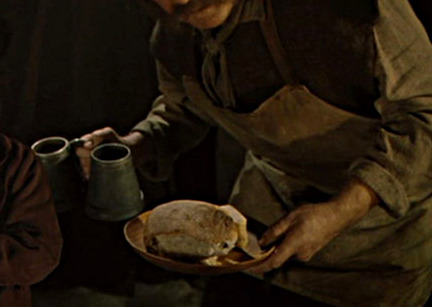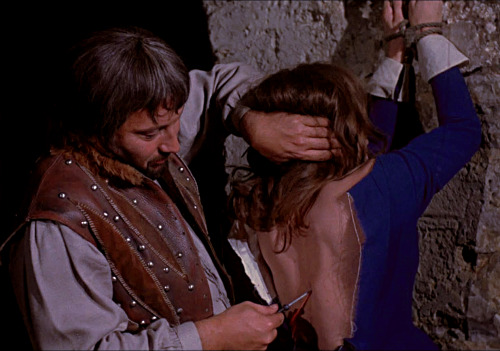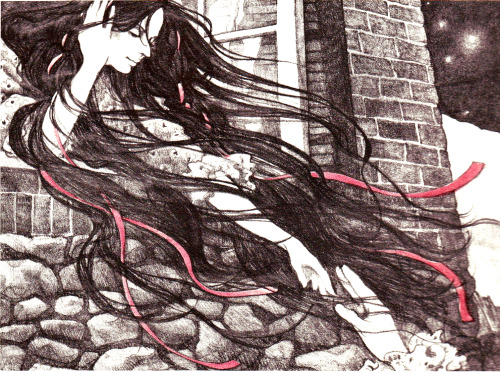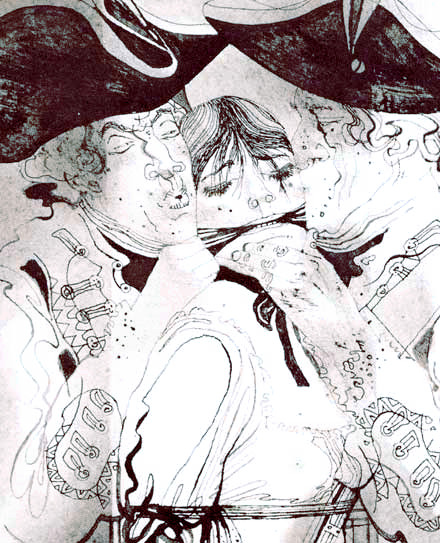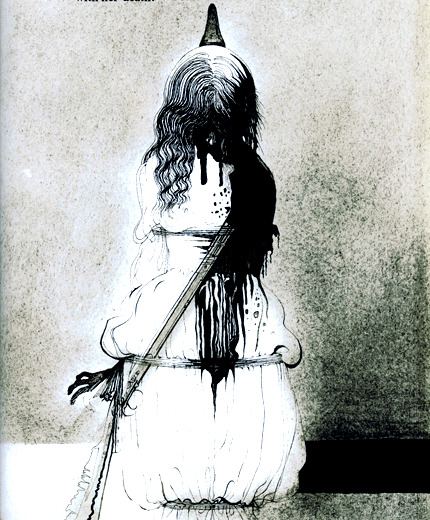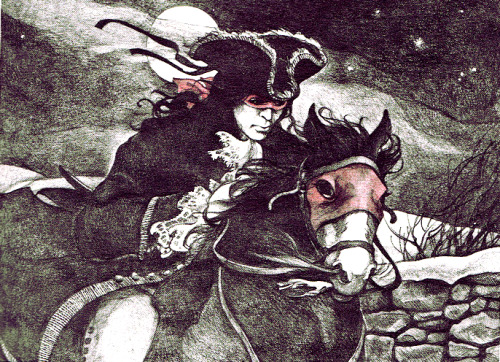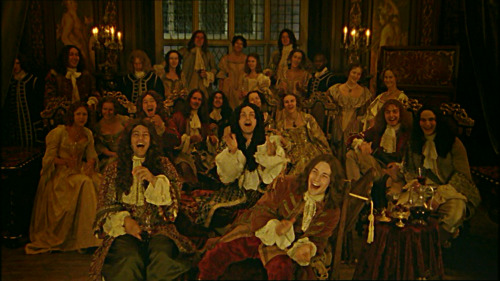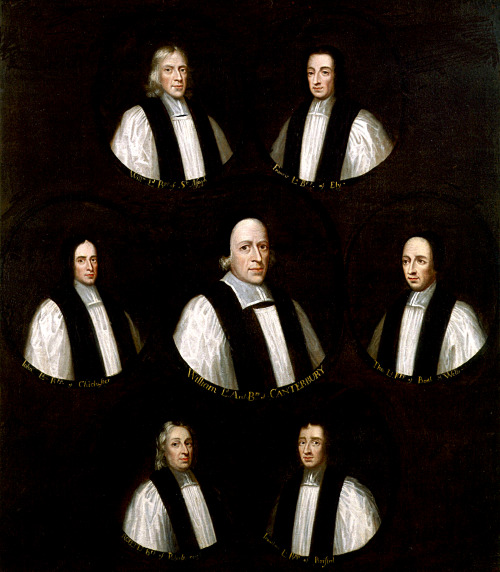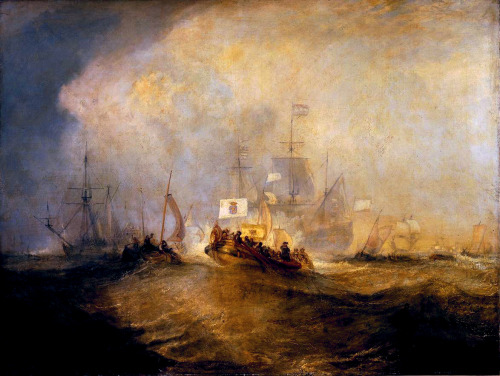#statute of secrecy
The truth behind the Highwayman’s Tale
If those interested had bothered to ride along the London-Bath road on the day the graves bring forth their dead, they might have learnt the entire truth behind the highwayman’s tale.
Of course, it was against their interest to know what led up to the events of that fateful nights, now that they’d so firmly established that all muggles were all monsters with no honor and no loyalty. They might have to, horror of all horrors, change the way they thought of the matter in the first place.
Then again, the human mind is capable of extraordinary mental gymnastics.
For if they’d particularly cared to know the truth about this man and his deeds, they could have asked the ghosts of Frederick and his lady love, both of whom still wandered the London-Bath road late at night.
They would have learnt that Freddie, by nature, was a philanderer and that this was no great love story of theirs. He would have left Bess without a murmur when he tired of her - indeed centuries of being forever at her side had long since weaned him of all desire and tenderness he might have once felt for her.
They might have remembered that Frederick Rosier made it his business to steal from his people; the wealthy purebloods; to return those goblin-made artifacts they had once seized for their own. That he never had a second thought where killing was involved, as long as he won his spoils. They might even have gone so far to have found a paybook with neat annotations of payments received from the goblins for each item recovered - they paid him a far greater sum than the pin money his father was wont to give him.
And let us not forget to name his lady love - Bess her name was, and she was a true Gryffindor like her highwayman - an ordinary tavern wench and muggleborn,who gave selflessly to her highwayman, knowing quite well that in time he would tire of her and marry some rich, odious pureblood witch and settle quite happily with her.
And even this is not the entire tale. This, at least, is still told among certain people, whose voices are rarely heard over the clanging of coins and proclamations of blue-bloodedness.
The highwayman’s tale was far more darker. Concerned more than one man.
If only they had bothered to question the ghosts of Frederick Rosier and his tavern wench - but in truth, who would have known where to look for them when the inn no longer stood to mark the place? - they might have learnt the entire tale. For the story the purebloods told their children left out the most crucial part of the tale: the arrest of the landlord and the burning of the tavern by King James’ men.
Of those who died in the fire that night, ten were muggles and only two were wizards. And for them, no justice, no vengeance was exacted and nobody knows their names or who they were, whether they had families who missed them and why they happened to have been there on that fateful night.
The fact that so many paid for one man’s reckless bravery is a part of the tale which is never told and will never be told as long as the sound of gold coins drowns it out.
What other tale would the purebloods tell their children about the wicked muggles, if not this one?
[Pictures Sources: The Girl Who Looked Out At the World by Alex Stoddard Photography, Screencaps from Stand and Deliver by Adam Ant,Witchfinder General,The Fellowship of the Ring,Building on fire by Sephirothmsk on Deviantart.]
Post link
The Highwayman’s Tale
Blood-red were his spurs i’ the golden noon; wine-red was his velvet coat,
When they shot him down on the highway,
Down like a dog on the highway,
And he lay in his blood on the highway, with the bunch of lace at his throat.
The Highwayman’s tale is a story each pureblood child hears in their cradle and is repeated to them, year after year, night after night until the words are forever locked into their hearts and they can tell the tale without stumbling, so that one day they too may pass this story to their children to teach them what it means to be a witch or a wizard.
Muggleborns who ask why, in these modern times, the magical folk still hide themselves away are told this tale in answer.
For the tale is one of violent beginnings and ends, of love passionate and enduring, of betrayal and jealousy, of pain and loss and death. And most importantly, it reveals the true nature of these lesser beings who once persecuted them and would persecute them once again, if they revealed themselves.
It tells the story of young Frederick Rosier, a wizard aristocrat turned highwayman and his love, a young witch who served as a tavern wench in her father’s inn. Every night he comes to her, before he rides on his way to make his raids in the moonlight. Jealous of Rosier; jealous that she should favour a handsome, reckless stranger over a steady lad like him; the muggle ostler Tim betrays them and tells King James’ men-at-arms of a highwayman who will ride the London-Bath road that very night and will return at dawn with his spoils to greet his lady love.
The king’s men come to the inn and bind the young witch to the foot of a bed, by a casement looking on to the road below, a musket underneath her breast. She shoots herself when she hears him approaching, warning him of the danger awaiting him at the inn and Rosier flees at the sound of the shot, not knowing that it is his love who has shot herself to save him. When he does hear of it, he turns his horse and rides to avenge her death and is shot for his efforts. King James’ men are rewarded by William of Orange, Tim the ostler rejoices and business continues as usual in the village as Freddie Rosier bleeds to death.
The tragedy of the tale, as it was told, lay not in the death of an innocent, but the butchery of a pureblood scion, beloved of the wizarding world and saviour of the poor. This was the way of muggles, the story taught, they killed those who helped the poor and betrayed their helpers.
Good wizards stuck by each other. Good wizards stood by their own. And when the muggles struck them, they would strike back with such force as to show them that these were not a people to be trifled with. They might have allowed themselves to bleed once but never again and certainly not for these non-magical liars and cheats.
They stood by each other as they did by the Rosiers when Freddie died.
[Image sources: The HighwaymanbyCharles Keeping,The Highwayman by Charles Mikolaycak]
Post link
Of the Statute of Secrecy and the Glorious Revolution
It began, truly, with the ascent of King James II. A Catholic king, a Papist; no true English King was he. Before, there was the Malleus Maleficarum, admittedly. An evil work, full of hatred and prejudice and gross ignorance. But James, James the Catholic King, went further than anyone had gone before. James saw witches brewing storms in cauldrons, wrecking his ships on the high seas. James saw dark shadows and dangerous forebodings in every nook and cranny, in every old crone’s face. James saw sorcery in the dark claws of the Black Plague which reared its head once again and scoured England’s bonnie shores for new victims. James saw Protestants and witches conspiring with each other, to depose him from his throne.
And so James made them burn.
They burned without discrimination. They burned harmless old women who had long outlived their usefulness. Children. Oddities. Enemies of the state, professed and believed. They stoked the flames with their pamphlets, little tracts and brandished copies of Malleus Maleficarum and other such esoteric works - and how the magical world burned. Wizards, witches and sentient magical creatures began to flee into hiding, shutting themselves away from the world they had once known. Books on wards which had hitherto languished on shelves were taken down and dusted off as the wizarding world slowly disappeared from sight. Calls for separation and secrecy were rife. Magical children who once played happily on the streets with their non magical counterparts were suddenly dragged away and indoors by worried parents. None dared walk the streets with their heads raised high - head down, eyes down, walk briskly, out of sight out of mind. And yet they burnt, the flames steadily rising higher.
Until finally the flames leapt so high, it tickled the chairs of the Malfoys and the Blacks, the Notts, Averys and Rosiers, the Prewetts and the Longbottoms and Macmillans. Powerful families, as yet untouched by the persecution their fellow witches and wizards were subject to, happy and carefree as they danced among the lords and ladies of the time and whispered secrets into the ears of princess Mary - for the king distrusted them far too much to let them counsel him. For the first time in centuries the whispers they heard were directed at them - strange, unnatural, abnormal, possessed by demons, satan worshippers, heretics, kill them, burn them. Cutting insults and calls for excommunication and worse, death, being freely tossed among those they had once considered friends.
So it was that some of the magical folk of England came to cast their lot with seven bishops and seven lords who had long been conspiring with William of Orange to depose King James (God have mercy on his soul, he had no right to usurp Parliament and its processes - nor to employ a standing army of his own; all Catholics, down to the last man). William would re-establish the rule of law and wizards would no longer have to live in the shadow of fear. This much was promised to them both. They would not have it as so many others would; to separate from the muggle filth, as the Blacks and Lestranges put it; for they did not care to lose their comfortable places in power. The Statute of Secrecy, which so many wizards were now favouring, was an idle and impractical fancy, said the Malfoys, Averys and Prewetts, for how could they live apart from those they shared their land with?
Of all the families of political importance, the Rosiers were uncertain of where they stood on the matter of separation from the muggles and were courted for their indecision. The Blacks and Lestranges would have them add their voice to theirs - and sometimes the Rosiers teetered on the verge of arguing for secession. But then the Malfoys would sidle up to them and remind them of all the influence and extravagance they stood to lose if they closeted their world away from the muggles. Reluctantly, Edmund Rosier finally sided with the Malfoys, unwilling to sacrifice the comforts of muggle aristocratic society.
Unfortunately, the best laid plans of men and wizards oft go astray. In this circumstance, they went astray in the form of Edmund Rosier’s youngest son, Frederick Rosier: an excitable young blood, with a penchant for causing disturbances on His Majesty’s highways. Young Frederick thought of himself as a noble, Robin Hood-esque figure, stealing from the rich to give to the poor. Needless to say, his father and much of the rich wizarding world looked on him askance and ignored his misdoings, save when it was they who were being robbed by this dashing young man.
It was when William had set sail from Rotterdam, after a storm on the seas had scattered his fleet, that the first of the rumours began to pour in. Another witch killing. King James’ men at arms had shot someone. The kind of rumours which were perpetually being tossed about. But it was on the first day of November, as the wizards tried their best to combat the unfavourable winds with weather altering charms, that news reached Edmund’s ears that young Frederick had been shot by King James’ men-at-arms at an inn on the road from London to Bath.
Now make no mistake, Edmund Rosier had never had much love for his son while he had lived, considering his youngest to be a disgrace to the family name. - had even gone so far as to disown him. His death at the hands of muggles, however, in the fashion of highwaymen bandits and muggle commoners, left him furious and distraught by a grief that a child experiences when a toy it has hitherto ignored is removed from its reach. He closeted himself away in Rosslyn Hall, seeing none but his closest family and exchanging letters only with the Blacks and Lestranges.
And while he was gone, pureblood society whipped themselves and wizarding Britain into a fanatical frenzy, for the muggles had gone and done a terriblething, shooting a Rosier as though he were a common criminal.
When William finally landed on England’s shores on November the 5th, and declared freedom and liberty for one and all, he found the wizarding world up in arms,crying for justice for this most precious son of theirs. For a Rosier is always a Rosier, even in disgrace and upon hearing of his son’s death, the Rosier patriarch had changed sides and now cried for separation from these animals altogether. Many rallied to him in their shock and horror - for young Rosier was well-loved among the people (and even though the Purebloods had never loved him in life, in death he became their champion, a brave hero who stood up to an unjust and oppressive regime and was consequently shot for his fine efforts).
What else could you expect from animals, said the Blacks. The Lestranges simply snorted sardonically, content that their point had been proved. Both welcomed the Rosiers into their fold, disbalancing the careful alliance of support the anti-statute of secrecy faction had built up.
Wait, said the Malfoys, for William would surely give them the justice they desired. (How tiresome to have to give up one's comforts for justice for a rich man’s wastrel.)
Yet William turned a deaf ear to them and turned instead to his non-magical supporters for advice. He praised the soldiers for doing their duty by God and their country, rewardedthem as the wizarding world looked on in horror. He had not come for these pagans, he said, he would not help them for they were rogues and criminals all, lacking in civic discipline and unbound by the true morality which came from the one true God above all other gods. His people were the Protestants and Anglicans - true Christians - not these heathens who in truth, deserved to burn for their heresies. Pro Religione et Libertate, that was his motto. He had not sailed all the way from Holland only to betray the motto he so proudly displayed on his arms. He would not hear these heathens and criminals any more.
Vindicated, the Lestranges and Blacks crowed in triumph: this, this was why allmuggles were filth; the Malfoys were foolsfor thinking otherwise. Those creatures could not be trusted to keep their promises; in the end they would always turn to bite the hands which fed them.
Too shocked to retaliate, the Malfoys made no countermove when the Wizengamot was convened and the Statute of Secrecy was voted upon. Family after family voted against mingling with these vile creatures, who turned on their friends sans provocation and could not be trusted to keep their word. For William had promised to help them, but when the time came for help, he had turned his back on them and chosen their oppressors and enemies - the ones who would have burnt them - forgetting that it was they, the magical ones, who had filled his sails with wind and brought him to England before James could rally his armies. William had betrayed them, but never again would they be so deceived.
Thus it was that the Statute of Secrecy was passed without a murmur of opposition. And in early 1689, not more than three months from Frederick Rosier’s death, the wizarding population of the British Isles forever closed themselves off from their fellow muggles and to all extents and purposes disappeared.
For a Pureblood is a Pureblood even when disowned and the magical folk always stand by their own - who would, if not them?
[Picture sources: Screencaps from Charles II:The Powerand Passion,The Seven Bishops Committed to the Tower in 1688 by an Unknown Artist,The Prince of Orange lands at Torbay by Turner, William III at the Battle of the Boyne by Jan Wyck]
Post link
There are histories and there are lies. The two are not mutually exclusive. The best lies are the ones which root themselves in history, no matter how apocryphal, and then proceed to repeat themselves over and over again until they become convincing truths. History is full of these lies, now taught as incontrovertible fact, when once upon a time some clever minds devised some lies to hide their own sordid parts in the telling of history.
There is a fact and that fact is the certain nature of human beings.
The history of the Statute of Secrecy is a history of lies and half-lies and apocryphal truths and a history of the certain nature of human beings. The story is always the same across Europe. Europe burned. The blood of witches and wizards turned their streams and rivers red. Old and young, weak and strong – the inquisitors and the confessors came for them all and with them, they brought the fires of hell and the wrath of a cruel and unfeeling god. Thou shalt not suffer the witch to live. To be tried for magic was to be condemned to death. Muggle villagers and muggle lords, they both looked on in cold disregard. This was the truth. This was history. This was a lie.
There is a better saying which governs the truths and half lies and apocrypha concerning the witch burnings. For the love of mammon is the root of all evil. The priests came and the priests went and in the middle, they changed their ragged cloths for trunks full of gold and silver. An alchemical miracle. The law, even the divine law, was a matter of business and Rome had had several centuries to perfect the art of peddling salvation and divine mercy. No other burgher knew its intricacies half as well as the Pope. No other merchant knew better how to turn a profit from a war which threatened to unthrone him. No other banker knew better how to mint gold from the bodies of the dead.
If the person of the Pope had not been so inviolate, so high above suspicion, they might have even called them sorcerers. Magicians. Alchemists who had surpassed their god in their miraculous deeds by turning the blood of peasants into gold.
In Italy they stamped their sealing wax with their signet rings and helped the Pope on the way to fixing his name to a Bull which gave them free reign. Della Rovere, Medici, Sforza, d’Este, Zabini. They had their muggles and they had their wizards – but the magical and the mundane did not matter where gold was concerned. Theywere not the ones going to the stake. And once the flames settled, Rome got its cut and they, as representative of Rome, got their own cut. Blood-gold and blood-silver for the coffers of Italy’s oldest magic families, reaped from the blood soaking the fields of France, Spain and the Holy Roman Empire.
In Germany, they fell over themselves to fan the flames of their hysteria. Better, after all, that they burn muggles and their poor brothers and sisters than them, when famine and war wracked the land. In Trier and Bamberg and Würzburg it was always the same case: non-conformists went to the flames and pious Catholics, even if they had wands, prospered. The priests took their pay, a cut for themselves and a cut for Rome, and they – Welfs and Ammendorfs, Ludekas and Hexenheims – took their lands, homes and whatever was left behind.
In France, Louis Philippe de Malfoi and Artaud de L'Étrangé carelessly provided Charles IX with a list of ‘witches’ – some of them magical, some of them muggle; the only common denominator was the fact that their lands happened to fall justoutside the borders of their own land. Not content to stop just there, they accused them of lycanthropy and all of France fell on these people with relish. There were one hundred thousand witches and wizards, the rumours ran, and Louis Philippe de Malfoi and Artaud de L'Étrangé had delivered one hundred of them - oh, some were magic, some were mundane, it made no difference to a hysterical France - to Charles IX. In return for their service to their country, they were both made Comtes and given a tidy slice of land each, in Languedoc in the South of France.
In Russia, they followed the Tsar. Anna Glinskaya became a witch – and so too did the boyars, when the Oprichniki came for them. So too did the Romanovs, though the magic had not entered their blood yet. Godunov found his throne slipping away from him – and the Shuiskiis, though they carried wands, were only too happy to send the Romanovs on their way. Magic, after all, was only as good as the people accused of it. The truth was only as important as the effects it produced and the power it handed to its accusers.
In England and Scotland, the story was no different. Apollonius Malfoy I whispered in the ear of James II of England and Scotland and received free reign to conduct the trials of North Berwick as he pleased. For that, he received the sum of forty thousand galleons and an Earldom. The Scottish clans deny it now, but they were there when Apollonius Malfoy accused the Earl of Bothwell of high treason and conspiracy with witches. Which witches? Eighty poor muggles, a doctor and nineteen poor witches who insisted on interfering with the natural running of things. They had it coming, Dougal Macmillan would say much later, they had it coming to them. No wonder, that when the magical world chose to secede it was Dougal Macmillan who urged them to wait for the new king and Apollonius Malfoy who reminded Edmund Rosier of all he stood to lose if they chose to secede.
The numbers, at the end of that dark time, ran into the tens of thousands. In 1693, the Statute of Secrecy came into place and the magical world disappeared. Malfoys and Macmillans, Ammendorfs and von Hexes, Rostovs and Shuiskiis, Malfois and L'Étrangés, Miletianii and Zabini – they retreated with their wealth and their power and began the lie.
Apollonius Malfoy had never spoken to a muggle in his entire life.
Cosimo de Miletianii had never been a cardinal.
Alexei Popovich Rostov retreated into legend and became a hero, as though he had never lived at all and had never sent boyars to Ivan the Terrible for execution when they proved stiff necked. As though he did not live on long after the Statute was put in place.
Lothar von Ammendorf – well the Ammendorfs were extinct, weren’t they, even if their coffers rattled with muggle silver and gold?
Charles de Malfoi had never succeeded to a county.
Just like that, overnight, the muggles and the Jews and the gypsies who had been burnt at stake became ill-used witches. The witches who had been burnt remained only in name and the histories of their ‘crimes’ were hidden. Their crimes, after all, were very simple: they were in the wrong place at the wrong time and angered the wrong kind of wizard. They all disappeared, devoured by the power of martyrdom and were canonized as victims of ‘those bloodthirsty muggles’. These were real wizards, after all, and with a casual sleight of hand, the certainty of human nature was vanished by apocryphal half-truths and fanciful lies which captured the imagination of a vulnerable and terrified public who saw blood and flames when they saw muggles. In the end, it was not the perfumes of Araby, but lies and more lies which turned their hands lily white.
And their tables and their coffers, when the dust settled, overflowed with the spoils of the hunt.
Post link



